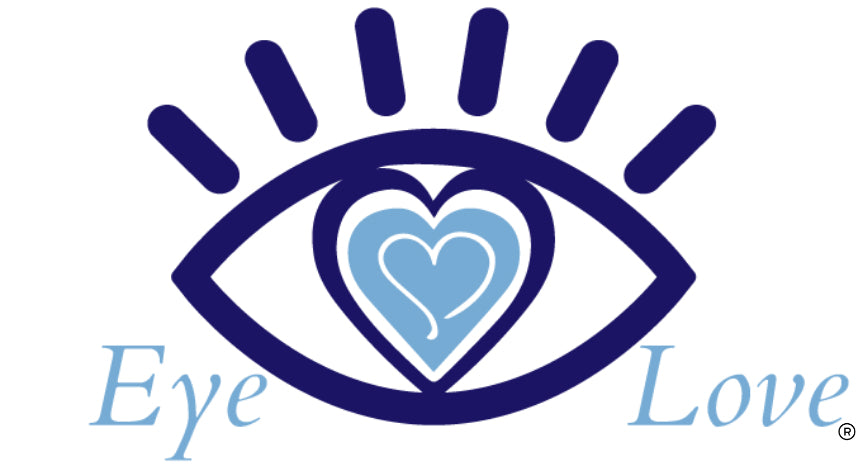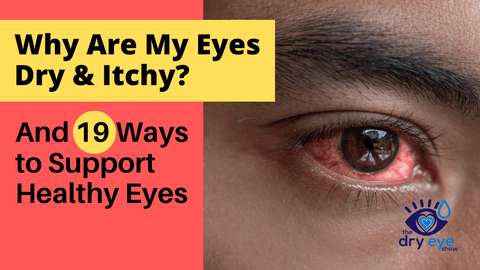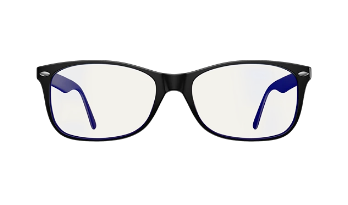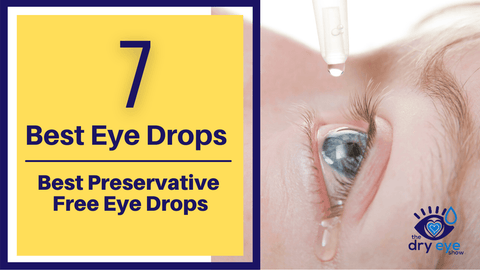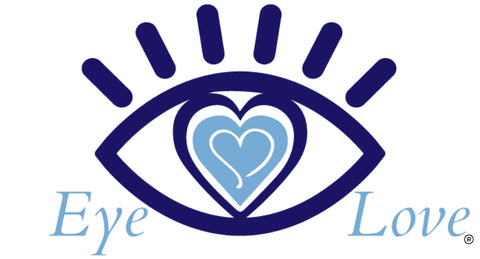Allergies are among the most disruptive conditions and, in severe cases, can be debilitating. Ocular allergies consistently rank high as a disrupter in quality of life surveys, likely because the eyes are an extremely sensitive part of the body and they can become EXTREMELY red, itchy, and painful.
Not only will your eyes be uncomfortable, painful, and itchy, but their cosmetic appearance may be less than desirable during a full blown allergic response (think red, puffy, watery eyes!)
So why are we talking about allergies when we usually talk about dryness? Because they can coexist! When this occurs, symptoms can often be worse and even more difficult for the patient and clinician to understand. It’s so important that you realize why these reactions occur and learn what you can do about them.
What is an Allergy?
By definition, an allergy is an atypical, hypersensitivity reaction to substances within a person’s normal environment. These substances are often commonplace, and the body has merely developed an immune response to these elements, which may be anything from pollen and dust to food and animal dander. You may even have a sensitivity to elements within new laundry detergents or facial lotions. Unfortunately, the possibilities are endless.
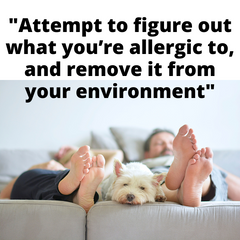
Types of Allergies
Allergies can take on many forms, and they are different for everyone. Seasonal allergies are quite possibly the most well known. This form is most often associated with plant pollens and typically will affect you during the spring. Perennial allergies, on the other hand, are noticed year-round. These allergens are typically due to indoor elements such as animal dander and insect proteins.
You may notice during these times that your eyes tear more often and, in fact, your tears play a very important role in both allergic conditions and dryness. When the surface of your eye detects an allergen or becomes unstable due to dryness, reflex tearing occurs and your eyes begin to water.
This reflex tearing occurs because the eye is calling for tears to flush out the allergens and protect the ocular surface. Although annoying, these tears can be helpful in flushing away allergic material and reducing the contact time with your eye, minimizing the allergic response. However, the unstable surface of the eye must still be supported.
Why Are My Eyes Dry and Itchy?
There are so many reasons for dry, itchy eyes, but since you're here reading about allergies, there's a good chance this is the cause for you. This is the first cause we think of when you have itchy eyes. Pollen is the number one instigator, but grass, trees, and weeds can all contribute to both seasonal and perennial allergies.
Pet dander is another common cause of allergies, and so is mold. These can both be found readily in many homes and contribute to perennial allergies.
Some allergy sufferers also notice that they react to other things, such as cigarette smoke. If you're a smoker or have one in your home, you should make an attempt to quit for the comfort and health of both you and those around you.
Lastly, perfumes, cosmetics, and household cleaners and detergents can all contribute to allergies. If you're suffering from allergic symptoms but it seems to be something other than pollen, take a look at the products you're using on a daily basis.
19 Ways to Support Healthy Eyes and Eyelids
1. Removal of the allergy
The first step with allergies is to attempt to figure out what you’re allergic to and remove it from your environment. Sometimes, this is easier said than done, as I am in no way telling you to get rid of your pets!
2. Eye drops for itchy eyes
If removal of the allergan is not possible, ocular allergy medications are the best way to block allergic reactions and allow for a stable surface. The current eye drops available are most often antihistamines and mast-cell stabilizers that provide quick relief.
I know this isn't the most natural home remedy, but we use over-the-counter Alaway eye drops, which you can purchase on Amazon, and we recommend using them twice a day, even before allergy seasons starts.
3. Keep your eyelids and eyelashes clean
One job of your eyelashes is to prevent debris and allergens from getting into your eye. When the eyelashes become "over-pollinated", the eye can't help but become red and itchy. We recommend using Heyedrate Lid & Lash Cleanser twice daily to keep the eyelids and eyelashes nice and clean.
Simply spray the solution onto a cotton ball or round and apply to your eyelids. Let it dry, since there's no need to rinse or remove.
4. Apply a cool compress to the eyelids twice daily
Sometimes, all you'll need is a cool compress on your eyes. This may help with puffiness and helps support your eyes as they improve. Simply place a cold compress mask, such as the MediViz Cooling Eye Mask, in the freezer for at least two hours (keep it in there during allergy season!) and then place it over your closed eyes for 10-20 minutes.
5. Chamomile tea bags and tea
- Steep 1 chamomile tea bag in a cup of hot water for 5 minutes. Remove the tea bag, then allow the tea to cool. Use the cool tea as an effective eyewash, 2 or 3 times a day.
- Alternatively, put used chamomile tea bags in the refrigerator. Put the chilled tea bags over your closed eyelids for 10 minutes. Do this 3 or 4 times a day for fast recovery.
6. Cucumbers
Cucumbers are naturally soothing for the eyes! If you don't have a cool compress or tea around, you can slice up some cucumber and place the slices over your closed eyes for 10-20 minutes. Cucumbers contain caffeic acid as well as vitamin C, which can both help to support eyelid health.
7. Green Tea
Green tea is filled with antioxidants. We recommend using the above procedure in a similar fashion with green tea:
- Put used green tea bags in the refrigerator. Put the chilled tea bags over your closed eyelids for 10 minutes. Do this 3 or 4 times a day for fast recovery.
- Enjoy a drink of that green tea as well!
8. 20-20-20 rule
We love this rule. When you're sitting at your computer working all day, your eyes can get tired and irritated and this is even more noticeable when you're suffering from allergies. Every 20 minutes, look up from your computer (20 feet away or further) for at least 20 seconds. This will help to give your eyes a rest. You could also use this time to use a cool compress.
9. Artificial tears as needed
We discussed allergy eye drops above, but regular artificial tears can be supportive as well. You're only supposed to use allergy eye drops 1-2 times per day (unless you purchase a preservative free version), so in between those uses you can feel free to use non-preserved artificial tears. These will help flush out any allergens in your eyes and get you through until the next drop of allergy medication or until you can use that cool compress.
10. Blue blockers when working on the computer
Like we stated earlier, the eyes can get super tired while working on the computer and this is the last thing you want while suffering from an allergy attack. Grab yourself a pair of blue light blocking glasses to wear while working on your computer. These lenses help filter out damaging blue light that could be causing loads of eyestrain and disrupting your sleep.
11. Avoid rubbing the eyes
This tip is a biggie. When you're suffering from allergies, histamine is released, which causes the intense itching and irritation you're noticing. When you rub your eyes, more and more histamine is released and this exacerbates the issue. Do everything you can to avoid rubbing your eyes throughout the day, so keep yourself busy!
12. Do not wear contact lenses during high allergy index days
Contact lenses harbor bacteria and allergens, and this is even more apparent during a high pollen day. For those of you in the South, you know when the yellow pollen begins to hit, and these are not the days to wear contact lenses. Enjoy your glasses for awhile or, at the very least, make sure you're wearing daily disposable contact lenses that you throw away every day.
13. Switch to daily disposable contact lenses
We just discussed this a bit, but daily disposable contact lenses are a great way to wear contact lenses without the fear of making your allergies too much worse. You're going to take these lenses out at night and dispose of them anyway, so you'll be throwing all of the attached allergens out as well. For many people, dailies are the way to go if they suffer from allergies or dryness.
14. Never share contact lenses, solutions, or cases with anyone
This should go without saying...NEVER share these things with others. Do you bathe in the same water someone else did? We're sure that you likely do not, and you shouldn't share these either. Keep your contact lenses on your own eyes, and your cases and solutions in your own hands.
15. Have a Green smoothie
We love a good green smoothie because they're full of antioxidants and nutrients needed to keep your body at it's peak of performance. We recommend replacing your breakfast with a green smoothie every single day.
16. Avoid fans and turn vents in your car away from you
I detest fans. Ceiling fans, upright fans, vents in my car...I really wish they didn't exist because all they do is dry out your eyes and spread allergens around. When you're suffering from irritation or an allergy attack, this is the last thing you want. Make sure to avoid fans in your home and work area whenever possible. It might be a bit hot if it's summer time, but it'll be worth it.
17. Keep your windows in the car closed and the windows of your house closed
During allergy season, windows are like fans. They have the potential to let allergens into your environment that wouldn't otherwise be there. Your house is already full of allergens, but don't contribute to this by allowing yellow pollen to invade your living and working spaces. Keep the windows closed!
18. Wash your sheets and towels often during allergy season
Allergy season means that allergens in your house are inevitable. We recommend washing your sheets and towels more often during these times, especially if you're sensitive to anything in your environment at the time. If you've never done so, try out eco-nuts for washing and organic wool balls for use during drying. This helps you avoid any additional chemicals in your laundry.
19. Use an all natural and minimal ingredient soap for showering and washing your face.
Body washes, shampoos, face wash, lotions, and perfumes are filled with nasty, unwanted chemicals and we are constantly putting these in and on our bodies. This can lead to sensitivities and allergic reactions that we don't even know about.
We love Heyedrate tea tree soap as it contains only five ingredients and each ingredient is in there to help support your skin.
